Are Think Tanks Part of Civil Society? IMAS Field Visit to MIC with Prof. Simandjuntak
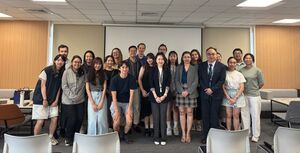
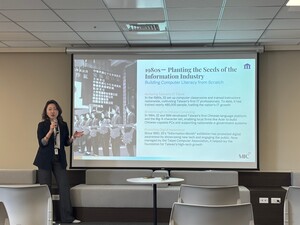
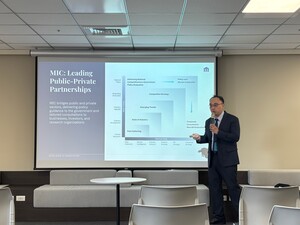
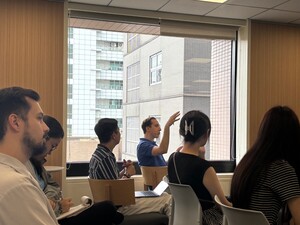
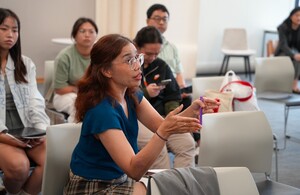
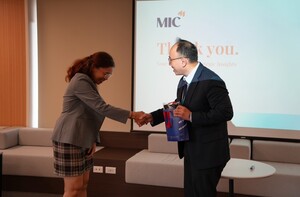
【Article by IMAS】
On Thursday, May 22, 2025, Prof. Deasy Simandjuntak’s class, “Civil and ‘Uncivil’ Societies in Southeast Asia”, was invited by the government think-tank Market Intelligence & Consulting Institute (MIC) to attend a talk at their office. The MIC, a strategic branch of the Institute for Information Industry (III), plays a crucial role in Taiwan and the Asia-Pacific region. Supported by government policy and technological development, MIC combines market intelligence and consulting to serve the global ICT sector, financial markets, and academic institutions.
The central theme of the talk revolved around the question: Can think tanks like MIC be considered part of civil society? And, how are they positioned between society and the government?
Dr. Yingfen Lin, from MIC, opened the session with a presentation on the history and founding of the Institute for Information Industry (III), under which MIC operates. She traced its origins to 1979, when Taiwan lost its seat at the United Nations. In response to the shifting international landscape, the Taiwanese government established III to aid the country’s transition from a land-based economy to one focused on digital technology.
Dr. Lin emphasized that III not only supported domestic digital industry development and literacy but also played a role in Taiwan’s soft power diplomacy. Through initiatives such as donating computers, offering digital technology training, and setting up centers across Southeast Asia, III contributed to international engagement. It also acted as an intermediary between the Taiwanese government and foreign technology ministries, thereby promoting international collaboration through digital and technological outreach.
The second part of the talk was led by the Director General of MIC, Chris Hung. He focused on MIC’s core functions within Taiwan. As a department under III’s R&D division, MIC operates as a government-affiliated research body. Its primary responsibilities include conducting research, gathering and analyzing data, supporting policy-making, and assisting industries in long-term strategic planning.
Addressing the central question—whether MIC qualifies as a civil society organization, both speakers offered a nuanced answer that MIC occupies a unique position. It receives both government funding and support from the private sector, thus straddling the boundary between state and public.
As a think tank, MIC has published over 2,000 research reports. Its primary audiences include government agencies and industry stakeholders, to whom it provides data-driven insights and strategic recommendations. Director General Hung concluded by emphasizing MIC’s bridging role between the government and Taiwan’s technology industries.
The talk concluded with a Q&A session with the students. Many expressed curiosity about the presentations and asked questions related to the challenges MIC faces in its work. One key issue discussed was the difficulty of digitalization—not just the technical transformation, but the more complex task of changing processes that involve people and society. As noted during the session, shifting mindsets and behaviors often proves more challenging than updating systems. Another question addressed how MIC navigates the balance between private sector interests and political tensions, especially when these priorities may conflict.
Moreover, both speakers also shared their experiences of working in the think tank with the IMAS students. For them, the most essential skills needed to work in a think tank are critical thinking. Passion, on the other hand, is also another important trait a person should have if they want to pursue a career as a researcher in a think tank.
Overall, the visit to MIC provided students with valuable critical insights. Hearing directly from a think tank that plays a strategic role in bridging government and industry helped them better understand the complexities and responsibilities involved in policy-oriented research and digital transformation.
Visit IMAS: https://imas.nccu.edu.tw


 Fax:886-2-29379611
Fax:886-2-29379611